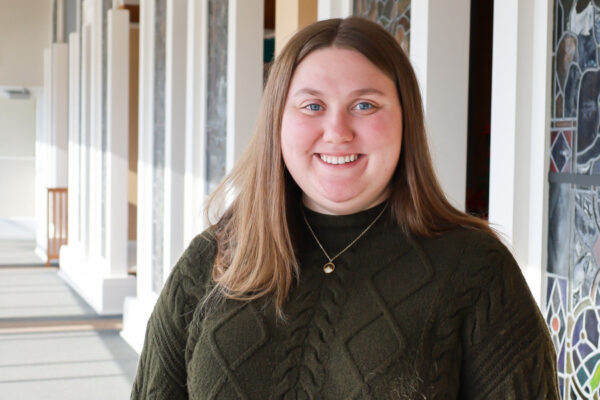Digital identity: A parenting series
Texting, Facebook, Twitter, Instagram, Snapchat, YouTube, Twitch. The digital channels for kids (and adults) are many – the identity choices are, too.
A new St. Paul faith milestone event this year for sixth-graders and their parents, Digital Identity recently explored the responsibilities carried with each username and interaction.
A series of conversations for parents of kids of all ages will begin next week. No need to sign up, just come to the Luther Loft.
- Video games and violent culture: Wednesday, Jan. 20, 5:30-6:30 p.m.
- Sexual imagery: Monday, Feb. 1, 6-7 p.m.
- Selfie culture and digital drama, Thursday, Feb. 11, 7-8 p.m.
“Your identity is already known and given to you by God,” said Andy Langdon, director of youth ministries. “But with teenagers, they are naturally trying out different identities. Teenagers are in the act of deciding which me they want to be, and social media gives them an endless playground to experiment with.”
During the recent milestone session – which will become an annual event for sixth-graders at St. Paul – Andy highlighted three concepts for creating a healthy digital identity.
Integrity: Be the same person in every situation, online and offline. There is a real temptation for any user of social media to not have high integrity (to say or do things that they would never do in person). Be your best self in all situations.
Transparency: Kids, act in a way that others can see what you are doing. If something is going on that you don’t want your parents to know or see, it probably shouldn’t be going on. Parents, your role with transparency is to be understanding, gracious, and forgiving, but always curious about your kids and what they are doing online.
Balance: Just like overeating is unhealthy, being overly attached to the social media in your world is, too. Be aware of your needs and wants, and make conscious decisions about what you need. Balance your time so that you can continue to enjoy the other people and activities in your life.
Parents and kids also discussed specific ways to stay true to God and oneself, and stay safe, online.
- I will never give out personal information such as my last name, address, phone number, or photos without my family’s permission.
- I will not share my passwords with anyone other than my family.
- I will allow my parents to check into my media history whenever they think it is necessary.
- I will not post anything online or share anything with my phone that might harm my reputation or the reputation of others.
- I will only have online interactions with people I know in real life.
- I will be mindful of how much time I spend in front of screens and I will continue to enjoy the other activities and people in my life.
- I will not say anything online that I wouldn’t say in person, I will not bully, humiliate, or upset anyone and I will stand up to those who do.
- I will always answer calls from my parents.
- I will help my family set media time limits that make sense and then I will follow them.
- I will tell my mom or dad right away if anything I see makes me uncomfortable or if anyone makes me feel pressure or acts inappropriately online.
“There is a lot of worry and fear when talking about kids going online,” Andy said. “There’s going to be some mistakes that are made, so kids and parents need support from other people. They are not alone in this.”




